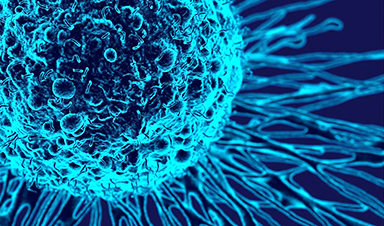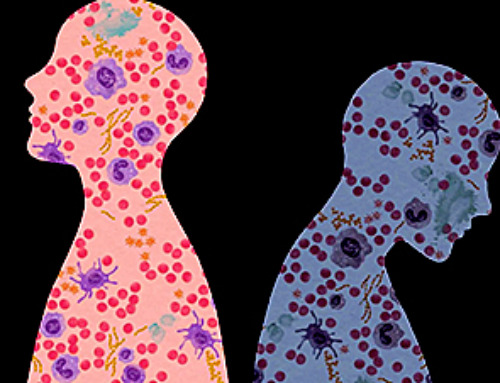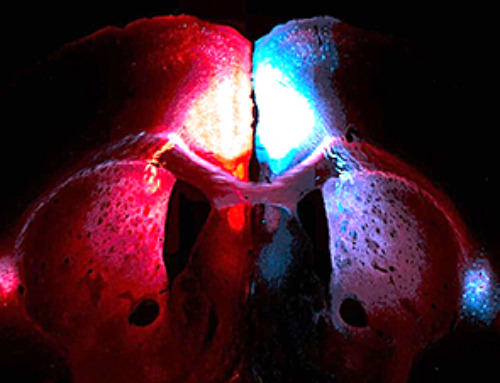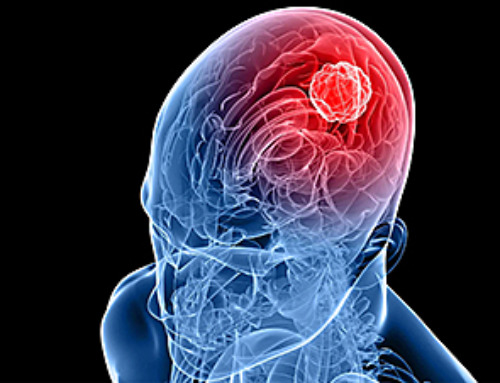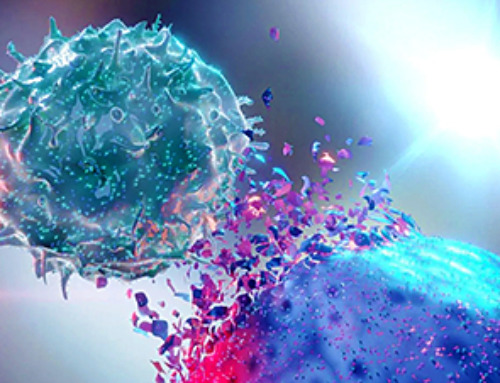Researchers have discovered that insulin resistance, typically linked with type 2 diabetes, is also present in cancer patients and can accelerate the spread of the disease.
In the 1920s, scientists found that the urine of cancer patients had a sweet odor. Initially, this left doctors perplexed, but they quickly realized that it was due to increased levels of blood sugar.
"This was one of the first things we learned about cancer patients," says Associate Professor Lykke Sylow.
The sweet-smelling urine suggested that cancer affects the body's blood sugar level. But how? A new study is ready to answer that question. Where previous studies have examined the connection between cancer and insulin, Lykke Sylow and colleagues' new study is the first to compile the best research on the topic, and the answer seems to be clear:
And the body's ability to respond to insulin is impaired in both cancer patients and people with type 2 diabetes.
Symptoms of type 2 diabetes such as fatigue and increased thirst and urination develop gradually and can therefore be hard to spot. And in cancer patients, insulin resistance can be even harder to identify as they already experience some of these symptoms, e.g. fatigue.
| About the study
The researchers conducted a meta-analysis of 15 studies of insulin sensitivity and cancer. This included 187 patients suffering from different types of cancer, including lung and colon cancer, and 154 control subjects. They only included studies applying the so-called gold standard, which is a very precise way of analyzing insulin sensitivity in humans. |
Insulin can cause cancer cells to multiply
Aside from the negative consequences of insulin resistance, the condition can also cause cancer cells to multiply.
"We know from cell studies, animal studies, and some human studies that insulin is a growth hormone and that it has the same effect on cancer cells. That is, a high level of insulin can make cancer cells grow faster," says the second main author of the study, Joan Màrmol, and adds:
"Of course, this can be a huge problem for cancer patients."
Furthermore, insulin resistance can influence the build-up of proteins in the muscles. That is, if the body fails to respond to insulin, it will lose muscle mass and strength, and that is a huge problem for a lot of cancer patients.
All in all, cancer and insulin resistance is a really bad combination.
Lykke Sylow hopes oncologists will begin to check patients' blood sugar level – even when it appears to be normal because insulin resistance can be hard to spot as the body will simply compensate by producing more insulin.
"And if they do find that the patient suffers from insulin resistance, they need to start treating it. We are able to treat insulin resistance because we have in-depth knowledge of the condition – we are just used to associating it with type 2 diabetes."
Aspects of the connection require more research, though.
"The next step is trying to determine who develops insulin resistance. Which cancer patients are at risk here? Do they have a particular type of cancer or specific risk factors? Or is it perhaps connected with the treatment?" Lykke Sylow says and adds:
"And once we have identified those at high risk of developing the condition, I hope to see more long-term studies of insulin resistance treatment and whether it has a positive effect on the patients."
Reference: "Insulin resistance in patients with cancer: a systematic review and meta-analysis" by Joan M. Màrmol, Michala Carlsson, Steffen H. Raun, Mia K. Grand, Jonas Sørensen, Louise Lang Lehrskov, Erik A. Richter and Ole Norgaard, 12 April 2023, Acta Oncologica.
DOI: 10.1080/0284186X.2023.2197124
News
This Is Why the Same Virus Hits People So Differently
Scientists have mapped how genetics and life experiences leave lasting epigenetic marks on immune cells. The discovery helps explain why people respond so differently to the same infections and could lead to more personalized [...]
Rejuvenating neurons restores learning and memory in mice
EPFL scientists report that briefly switching on three “reprogramming” genes in a small set of memory-trace neurons restored memory in aged mice and in mouse models of Alzheimer’s disease to level of healthy young [...]
New book from Nanoappsmedical Inc. – Global Health Care Equivalency
A new book by Frank Boehm, NanoappsMedical Inc. Founder. This groundbreaking volume explores the vision of a Global Health Care Equivalency (GHCE) system powered by artificial intelligence and quantum computing technologies, operating on secure [...]
New Molecule Blocks Deadliest Brain Cancer at Its Genetic Root
Researchers have identified a molecule that disrupts a critical gene in glioblastoma. Scientists at the UVA Comprehensive Cancer Center say they have found a small molecule that can shut down a gene tied to glioblastoma, a [...]
Scientists Finally Solve a 30-Year-Old Cancer Mystery Hidden in Rye Pollen
Nearly 30 years after rye pollen molecules were shown to slow tumor growth in animals, scientists have finally determined their exact three-dimensional structures. Nearly 30 years ago, researchers noticed something surprising in rye pollen: [...]
NanoMedical Brain/Cloud Interface – Explorations and Implications. A new book from Frank Boehm
New book from Frank Boehm, NanoappsMedical Inc Founder: This book explores the future hypothetical possibility that the cerebral cortex of the human brain might be seamlessly, safely, and securely connected with the Cloud via [...]
How lipid nanoparticles carrying vaccines release their cargo
A study from FAU has shown that lipid nanoparticles restructure their membrane significantly after being absorbed into a cell and ending up in an acidic environment. Vaccines and other medicines are often packed in [...]
New book from NanoappsMedical Inc – Molecular Manufacturing: The Future of Nanomedicine
This book explores the revolutionary potential of atomically precise manufacturing technologies to transform global healthcare, as well as practically every other sector across society. This forward-thinking volume examines how envisaged Factory@Home systems might enable the cost-effective [...]
A Virus Designed in the Lab Could Help Defeat Antibiotic Resistance
Scientists can now design bacteria-killing viruses from DNA, opening a faster path to fighting superbugs. Bacteriophages have been used as treatments for bacterial infections for more than a century. Interest in these viruses is rising [...]
Sleep Deprivation Triggers a Strange Brain Cleanup
When you don’t sleep enough, your brain may clean itself at the exact moment you need it to think. Most people recognize the sensation. After a night of inadequate sleep, staying focused becomes harder [...]
Lab-grown corticospinal neurons offer new models for ALS and spinal injuries
Researchers have developed a way to grow a highly specialized subset of brain nerve cells that are involved in motor neuron disease and damaged in spinal injuries. Their study, published today in eLife as the final [...]
Urgent warning over deadly ‘brain swelling’ virus amid fears it could spread globally
Airports across Asia have been put on high alert after India confirmed two cases of the deadly Nipah virus in the state of West Bengal over the past month. Thailand, Nepal and Vietnam are among the [...]
This Vaccine Stops Bird Flu Before It Reaches the Lungs
A new nasal spray vaccine could stop bird flu at the door — blocking infection, reducing spread, and helping head off the next pandemic. Since first appearing in the United States in 2014, H5N1 [...]
These two viruses may become the next public health threats, scientists say
Two emerging pathogens with animal origins—influenza D virus and canine coronavirus—have so far been quietly flying under the radar, but researchers warn conditions are ripe for the viruses to spread more widely among humans. [...]
COVID-19 viral fragments shown to target and kill specific immune cells
COVID-19 viral fragments shown to target and kill specific immune cells in UCLA-led study Clues about extreme cases and omicron’s effects come from a cross-disciplinary international research team New research shows that after the [...]
Smaller Than a Grain of Salt: Engineers Create the World’s Tiniest Wireless Brain Implant
A salt-grain-sized neural implant can record and transmit brain activity wirelessly for extended periods. Researchers at Cornell University, working with collaborators, have created an extremely small neural implant that can sit on a grain of [...]
